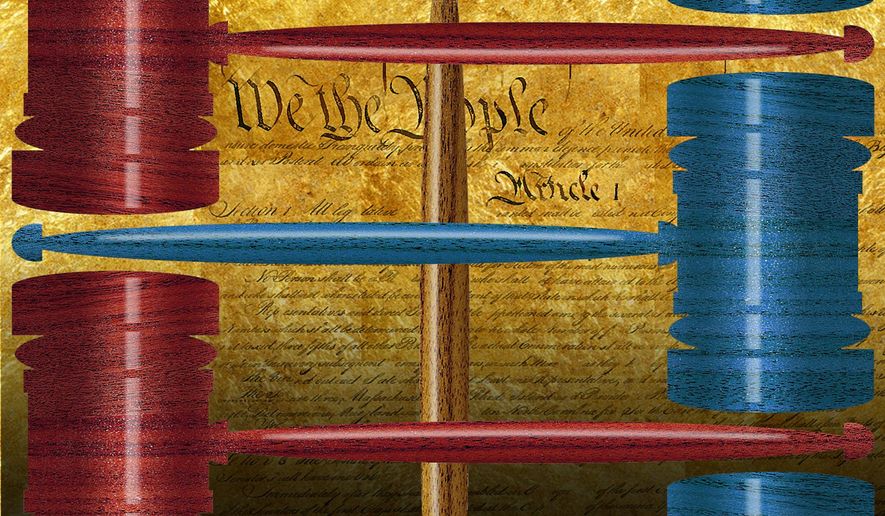OPINION:
In an extraordinary move, the Supreme Court just stopped a judge from assuming control of the presidency. U.S. District Judge Amir Ali had issued an ultimatum giving the administration until midnight Wednesday to restore funding to grant recipients of the U.S. Agency for International Development.
Aside from the practical difficulty of cutting $2 billion worth of checks on a few hours’ notice, compliance would have meant distributing cash to groups that the White House has identified as being involved in wasteful or fraudulent activity or organizations whose mission conflicts with U.S. foreign policy goals.
Chief Justice John G. Roberts Jr. recognized the danger of allowing an inferior magistrate to command executive authority in such a brazen way. He suspended Judge Ali’s over-the-top directives while reasoned arguments in the case are considered.
Judge Ali’s colleague on the D.C. bench, Judge Amy Berman Jackson, is likewise pushing the boundaries of her power. Still, the high court let her decree to install Hampton Dellinger, a Biden appointee, as head of the special counsel’s office slide for a few days.
“The court effectively commanded the President and other Executive Branch officials to recognize and work with someone whom the President sought to remove from office,” Justice Neil M. Gorsuch wrote in describing Judge Jackson’s directive.
Dissenting from his colleagues’ decision to wait and see what happens, Justice Gorsuch said our history shows no example of the judiciary reinstating an official who wields prosecutorial power. There’s a good reason it hasn’t happened because it’s a recipe for mischief.
Mr. Dellinger is now restocking federal agencies with probationary employees, and the White House has terminated them. He is undermining the administration from within.
Since the 19th century, the Supreme Court has said it is “well settled” that courts have “no jurisdiction over the appointment and removal of public officers.” That’s a polite way of saying what Judge Jackson is doing is lawless.
If he ultimately prevails, Mr. Dellinger should receive monetary compensation for lost wages, nothing more. The high court justices will eventually arrive at this conclusion, but they hesitate to take action in the early stage of a dispute, even though this is where a lot of damage is being done.
Dozens of federal courts in carefully selected blue jurisdictions are hearing similar cases seeking to reverse the president’s policies. A few of these efforts have been tossed out, while others proceed. Partisan jurists such as Judges Ali and Jackson are trying to stall the elected president’s momentum by using nationwide injunctions to block the implementation of his agenda.
House Republicans have introduced impeachment resolutions against two other activist judges, but this is performative. Without evidence, these magistrates are wielding the gavel to fill their own pockets with taxpayer money. They will never come anywhere near the two-thirds threshold in the Senate for removal.
Rep. Darrell Issa, California Republican, has more serious reform in mind. On Monday, he introduced the No Rogue Rulings Act, which would forbid district judges from issuing nationwide injunctions that apply to individuals who aren’t a party in the lawsuit.
“Nowhere in our Constitution is a single federal judge given absolute power over the President or the people of the United States,” he wrote on X.
It’s the Supreme Court’s job to ensure inferior magistrates behave themselves, and right now, the justices aren’t doing enough. If the high court won’t curtail nationwide injunctions, Congress must take this power away from them.




Please read our comment policy before commenting.